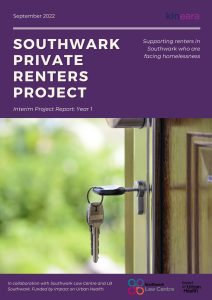14 May 2019
High stakes exams are increasingly causing stress and anxiety in children as young as six, with teachers and parents also feeling the pressure. We believe that a more holistic, joined up support approach is needed in schools, to aid everyone involved in working through this demanding period.
It’s that time of year again.
Growing levels of anxiety, an increased workload for pupils and teachers, and a greater focus on academic attainment over wellbeing in schools, are just some of the reported challenges being faced by pupils and teachers alike.
Exam related stress is, according to a recent survey by the children’s charity Barnado’s, the greatest cause of concern among parents. Moreover, a survey by Girlguiding found 69% of respondents aged 11-21 cited exams as their main cause of stress.
Further evidence shows that the emphasis on exams and academic attainment in schools and the wider education system is having a negative impact on wellbeing, with 80% of young people saying that exam pressure has significantly impacted on their mental health.
The wider challenges that young people face today, from the pressures of a 24-hour digital world to a lack of specialist support and low self-esteem, is also having an impact on emotional wellbeing, in turn affecting the way they approach exams. For some, challenges at home and/or family pressure to do well, can add even further stress during exam season.
Have exam reforms contributed to pupil anxiety?
In some cases, increasing pressures appear to be surfacing amid the backdrop of government changes to GCSE and A Levels, such as scrapping modules and the majority of coursework, as well as the new 9-1 GCSE grading.
The linear qualifications have reduced stress for pupils because scrapping modules means “fewer stressful periods”, not more, according to Education Secretary, Damian Hinds.
Except the reality for many teachers and school leaders – contrary to Hinds’ claims – is that linear exams have contributed to an even more high-stakes and stressful exam period. To this point, some teachers have argued that stockpiling exam pressure for a few months, especially for SEND students, is not inclusive to the varied needs of children.
 The challenges of exam season
The challenges of exam season
Worryingly, reports of pupils crying, vomiting and having nightmares due to exam pressure have even emerged in primary schools. A poll of teachers last year revealed children having nightmares and becoming sick from anxiety after tougher SATs, with many arguing that we need to prepare children for life and not just exams.
Alongside this, education experts, psychotherapists and campaigners have warned that the Government’s plans to introduce baseline assessments for four-year-olds will put undue stress on children, causing “enormous damage” to children’s learning and development. The More Than A Score Coalition have argued, among other things, that it is not necessary to test them at that age – an age of general emotional fragility – and that pupils can often pick up on the stress of adults, including teachers under pressure.
Zak, a member of the Youth Panel at YoungMinds, works closely with children at Sebright Primary School, in Hackney, East London, as a near-peer learning mentor and role model undertaking City Year UK’s Leadership Development Programme. He believes that compulsory testing for 7 and 11-year-olds doesn’t do justice to capturing the capability of his mentees and was personally excited to hear Jeremy Corbyn’s plans to scrap SATs for good, while consulting parents and teachers for an alternative system of assessment and trusting teachers’ overall evaluation of their students in place of a dogmatic, test-driven system.
Reflecting on his experience, he said: “Our school thankfully recognises the holistic needs of children and facilitates our work developing pupils’ wellbeing and sociability, in turn impacting positively in classroom interventions.
But the rigorous culture of testing doesn’t let children be children. Even a more able Year 6 pupil this week shyly confided in me that our daily morning chats and playground games together is solely what she looked forward to everyday during the pressure of SATs preparations.
And while I understand that SATs are used to hold schools to account in league tables, many teachers say that the results don’t tell them anything they didn’t already know about their students’ abilities. Not only that, but one thing is for sure: the life skills, ingenious creativity and unique personality of each and every child I work with could never be relayed though a test score.”
 Pupil and teacher wellbeing is closely linked
Pupil and teacher wellbeing is closely linked
Further research shows that teachers are also under constant pressure to perform, often without the resources and support needed to do their job. These challenges include managing a demanding workload, dealing with behavioural problems and meeting targets relating to pupil attainment – all of which are taking a toll on their mental health and wellbeing. This is backed by last year’s Teacher Wellbeing Index which highlighted a “stress epidemic” and rising mental health issues within the teaching profession – and this is heightened during exam season.
Moreover, pupil and teacher wellbeing can be, and is often closely linked, and this is something we’ve seen in the schools we’ve worked in. Children can often pick up on the stress of adults which affects their own confidence and motivation in school.
Conversely, teachers who are dealing with their own challenges can often feel overstretched in dealing with challenges such as classroom misbehaviour, or pressure to identify mental health issues in pupils, which means early intervention isn’t always possible. To this point, the National Union of Teachers revealed that a staggering 93% of teachers agreed that their stress levels “sometimes impact” on the way they interact with pupils.
 We need a whole-school approach to wellbeing
We need a whole-school approach to wellbeing
Whether you’re an advocate of modular or linear assessment, abolishing or retaining SATs, many of us will agree that exams are inherently stressful. It has been argued, however, that exams in some ways provide an ideal opportunity for pupils to develop resilience, learn how to cope with challenge and prepare them for later life. The key issue is “whether students feel supported”, chair of Ofqual, Roger Taylor has claimed.
Roz Head, former Motivate to Educate practitioner, highlighted the importance of helping pupils acknowledge their stress and supporting them in the run-up to exams. “I think the most important message is that no emotion is ‘good’ or ‘bad’, it’s what you do with it that counts. Letting a child know that we all feel worried, angry or sad sometimes and letting them accept these feelings without judgement is a real gift.”
Specifically, Roz had seen the difference it made in supporting and engaging teachers and parents, in understanding the wider context, getting to the ground root of the issue and achieving better outcomes for everyone. What’s more, by giving teachers and parents the space and time to focus on their own wellbeing, she witnessed a positive correlation on the wellbeing of pupils. In the case of Senel and Chelsey, who took part in M2E, we can also see a clear link between wellbeing and higher academic attainment.
Teachers have also seen the impact that joined-up, wraparound support brings to the whole school community, from intensive programmes for pupils, practical and therapeutic guidance for parents to wellbeing care for school staff. Kirstie Barrett, Head of Harrington Hill Primary, said: “Kineara’s success in building trust is very unique. They attend community events regularly, join Parent/Teacher Consultation evenings, and attend meetings between staff and parents when there is a SEND or pastoral need or just a benefit in doing so, so they are visible and approachable to the whole community.”
Whilst the education system ought to give greater prominence to wellbeing in education, schools also have a vital role in creating supportive and inclusive environments where there are opportunities for pupils to overcome challenges, but also to ask for help. And with evidence pointing to both a pupil and teacher mental health crisis, a joined up, whole-school support approach is needed now more than ever.
Find out more about our education services.


